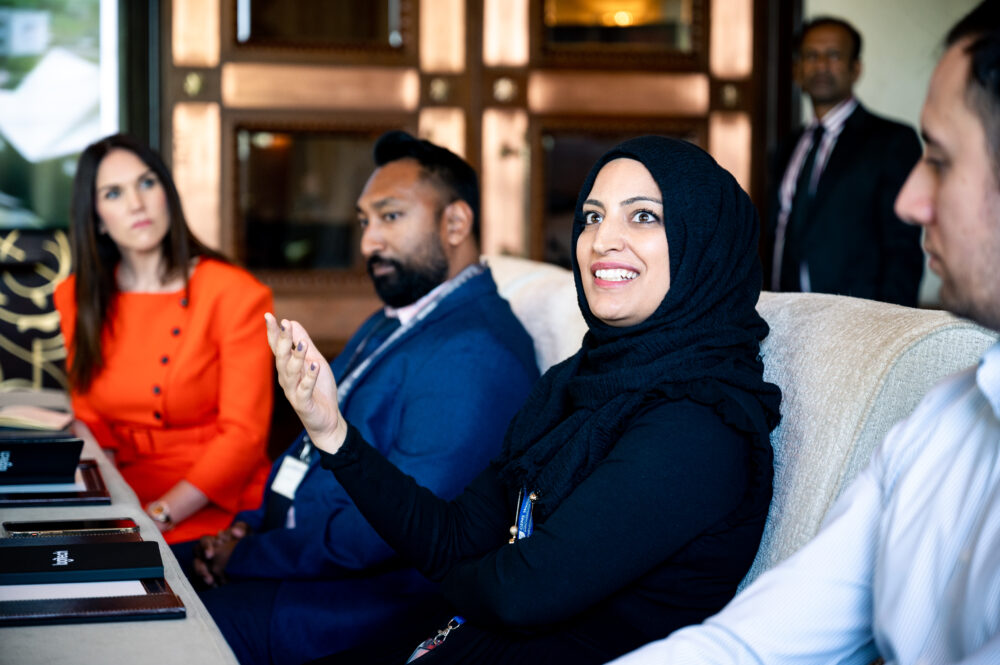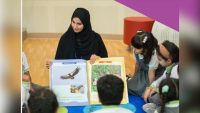Education Middle East partnered with global digital product leader Logitech to host a roundtable to discuss the region’s technology challenges and solutions in education
Dubai, June 20, 2023: Education in the GCC is set to experience an increased demand for video collaboration by 2025, according to an EMEA-specific survey by Futuresource Consulting. Globally the demand for video collaboration bars (conference camera with built-in speakers) in education is expected to triple between 2023 and 2027, driven by a focus on online learning, flexibility and personalisation.
The data was revealed at a roundtable, organised by Education Middle East in partnership with Logitech, which brought together esteemed panelists, including ICT and IT Heads from UAE’s K-12 sector.
The focus of the discussion was the predominance of video in the new ways of learning and how devices supporting better video experience have been gaining prominence among schools and educators.
The participants discussed at length the key results of the Logitech-commissioned survey, involving 800 IT decision makers across global markets in education.

Anil Iype, Logitech’s Global Head of Business Development & Cloud Alliances Sales, said that the substantial investment demonstrates the sector’s recognition of the potential of video collaboration to address challenges such as teacher shortages in order to foster a competitive education system.
One of the key findings of the survey was the predominance of tablets in the UAE education market. iPads make up over 60% of the tablet segment in UAE’s education system.
An estimated 215,000 new devices will be shipped into education in the UAE to be used across Windows devices, Chromebooks and tablets.
The study also reveals that the video market is going to continue to grow, and students and teachers are increasingly going to be using webcams.
The survey also noted the importance of various digital accessories among schools and students. Mouse continues to remain one of the most popular and in-demand accessories among both schools and students followed by microphones, PTZ (pan, tilt and zoom) cameras and headsets.
Panelists discussed at length some of the key findings of the survey and its impact on the education sector.
About 46% of respondents agreed that using a physical keyboard and headset while using learning apps in classrooms results in positive impact on student assessment. Similarly close to 41% agreed that the use of mouse instead of trackpads, and digital stylus instead of fingers when it comes to touch screens enhances the learning experience.
One of the most important takeaways, according to Iype, is an understanding of how learning just doesn’t end with the purchase of a laptop or a tablet. “Pre-pandemic the baseline was providing a 1:1 device for a student. Learning does not end with just a standalone device anymore. Learning is about focus and stamina and sustained engagement. The future classroom will be equipped with devices and accessories that can enhance the user experience,” he said.
Referring to some of the popular perceptions Iype said, “Everybody thought, and in many places think even today that hybrid learning means having your kids learn from home. However, globally classrooms are being designed as learning spaces with collaboration tools to connect students across the region to expand learning and possibilities. The ability to create content is now a priority for both students and teachers. This can take place from anywhere. Future classrooms are already being designed for hybrid learning, with full integration of video facilities. Video is an integral part of digital transformation towards preparing students for the future. This is what we are now seeing take place in Europe, Singapore and other developed markets.”
The survey also reveals that 55% of schools worldwide employ webcams to facilitate one-to-one and remote learning, often provided as part of comprehensive learning bundles extending into the upcoming academic year. Respondents indicate a strong agreement (36%) regarding the significant improvement in the learning journey through webcam usage.
According to him, the use of webcams is going to be beyond what it is today. “Students should be able to take their laptops and go to a library if they want to concentrate and also connect with a peer in a different school because, learning, as we see it today, is not always going to happen in the classroom forever,” he said adding that “learning is going to become much more collaborative, scalable, and will start to reflect how workplaces are being designed to enable collaboration”.
Logitech on its part, he said, is already ready with a roadmap aligning with the right channel partners in key markets such as the UAE. “We outfit, we look to see what devices the schools are using, and how we can add value to their experience. We are also aligning with Strategic Alliance Partners such as Microsoft, Google and Zoom including Apple to define the right solution that really works and enables teachers to produce content with ease.”
One of Logitech’s customiseed products the Scribe enables educators to tackle a common challenge encountered by remote learners.

Teachers often face the issue of partially obscuring the content on traditional whiteboards when making notes. Jawad Jabalane, Logitech’s Head of Channel & Alliances for the region, said Scribe – an AI-powered whiteboard camera positioned above the whiteboard – creates a transparency effect on the teacher’s hand or body, allowing students to have an unobstructed view of the whiteboard.
“Logitech Scribe enables students to ‘see through’ the instructor and benefit from an unobstructed view of the whiteboard,” and “the AI technology enhances the colour and contrast, making the content sharp, clear, and easily readable on remote devices,” said Jabalane.
Details of other similar products can be found on the Logitech website.
The participants also discussed the importance of device management and challenges faced, including mobile device management, cost implications, infrastructure, network security and the concerns related to VPN usage among students.
Zaineb Mahdi, Director of Innovation & Digital Tech – Wellington Cluster, GEMS Education said that a flexible approach to BYOD, which allows parents to choose the type of device their child brings to school, and using learning applications compatible on all operating systems including Windows and Chromebooks can mitigate the cost implications for parents.
According to her, security and protection of students in the digital environment is also one of the major concerns. She added that ensuring students’ online safety and dealing with inappropriate content on platforms such as YouTube are growing concerns.

Vaughan Pope, Head of Educational Technology at Taaleem, emphasised the significance of adhering to specific expectations and standards for devices within the educational framework to achieve optimal learning experiences. One crucial aspect that requires careful consideration is the standard expectation for the processor or platform. He stresses on the establishment of efficient infrastructure networks that are predominantly cloud-based and schools utilising device management companies, specifically for school-owned devices as it can ensure effective operations and maintenance.
Meanwhile, the discussions also stressed the need to find ways to support parents in managing and controlling device usage, as many parents may not be familiar with the necessary controls and safeguards.
Javaid Russool, Specialist Teacher in Maths and Science, Regent International advocated the importance of collaboration and interactive learning experiences beyond relying solely on devices such as the use of big whiteboards where students can work together, model ideas and engage in collaborative activities.
The incorporation of flip learning, a pedagogical approach where students learn the instructional content independently before coming to class, has gained prominence in modern education. He believes that today various apps and tools enable students to access supplementary materials, including videos and tutorials, outside the traditional classroom setting, allowing them to engage with the content at their own pace.
Other leaders from Logitech including Loubna Imenchal, VP / Head of Enterprise Business, Logitech Africa Middle East Turkey & Central Asia; Costas Strigaris, Regional Channels, Sales and Product Leadership; Angelos Stefanidis, Head of B2B Sales – Video Collaboration & Personal Workspace – Emerging Markets (AMECA, India & SouthEast Asia); and Mohammad Ali, Head of Enterprise Business (GCC) for Video Collaboration joined the roundtable.
Besides Mahdi, Pope and Russool, other ICT and IT Heads from UAE’s K-12 sector including Matthew Kelsey: Director of Technology at American School of Dubai; Manoj Mohan: ICT Team Lead, Swiss International School; Dr Joseph Nettikaden: Chief Information Officer, ESOL Education; Hussain Alhamo: Head of Technology, ISP School and Victoria Hopkin, Head of ICT, Sunmarke School were also part of the panel.








